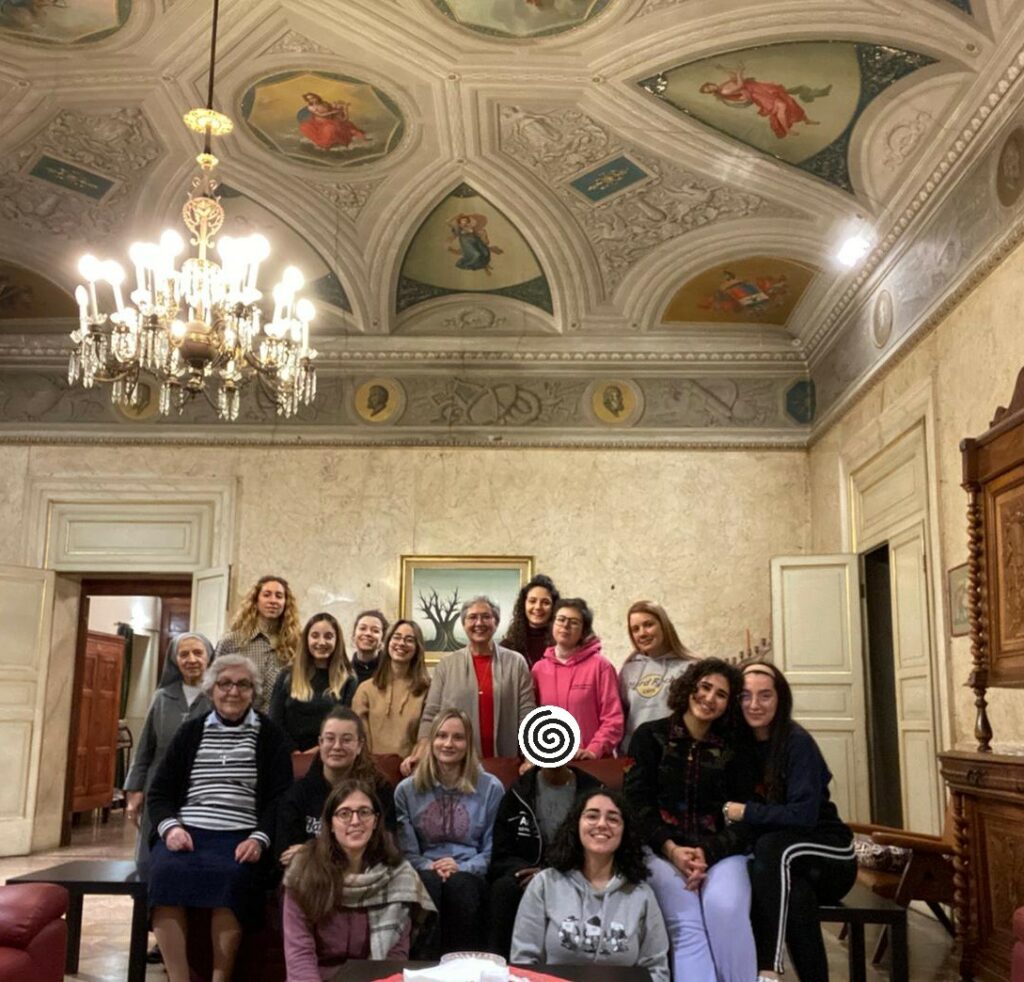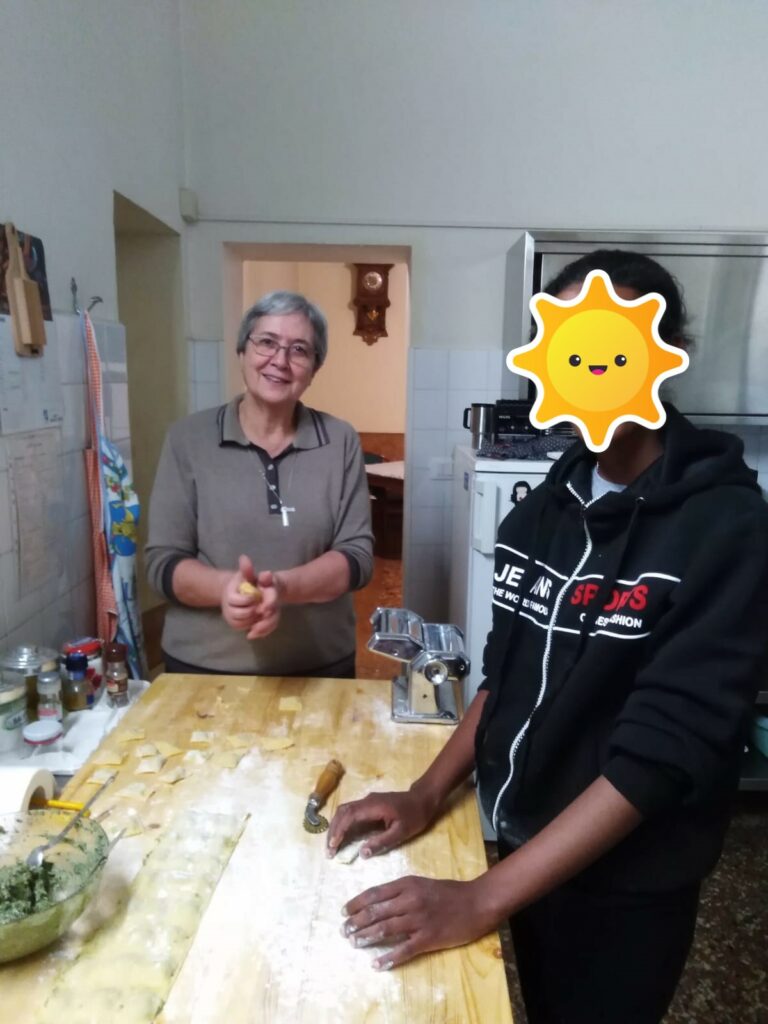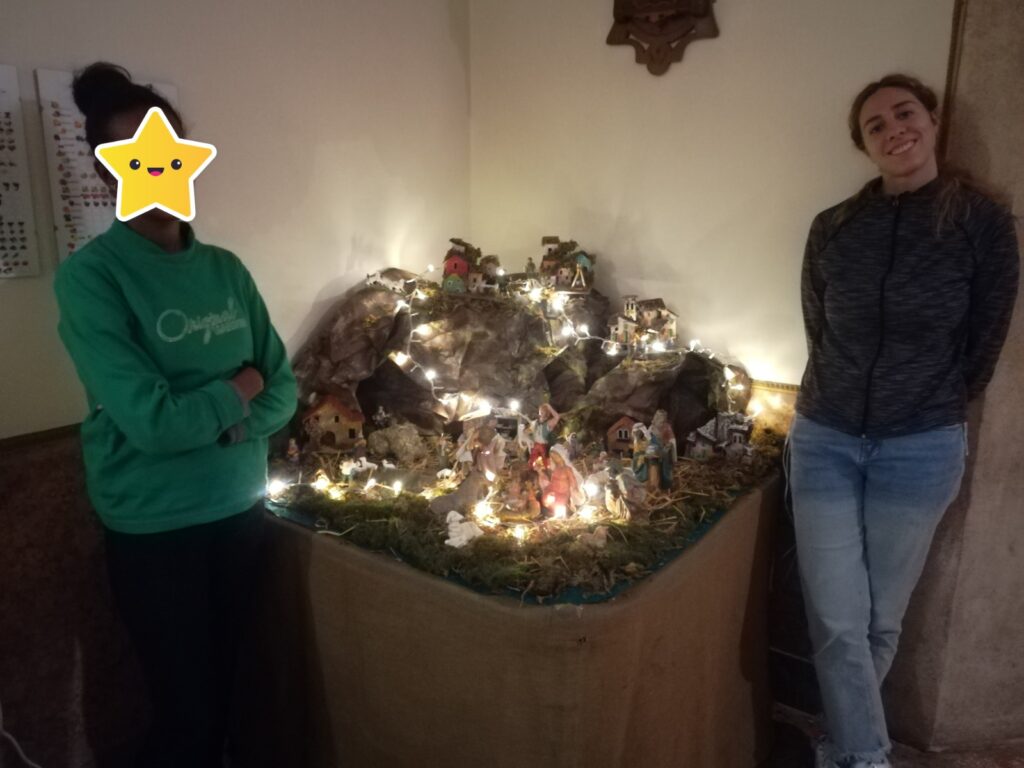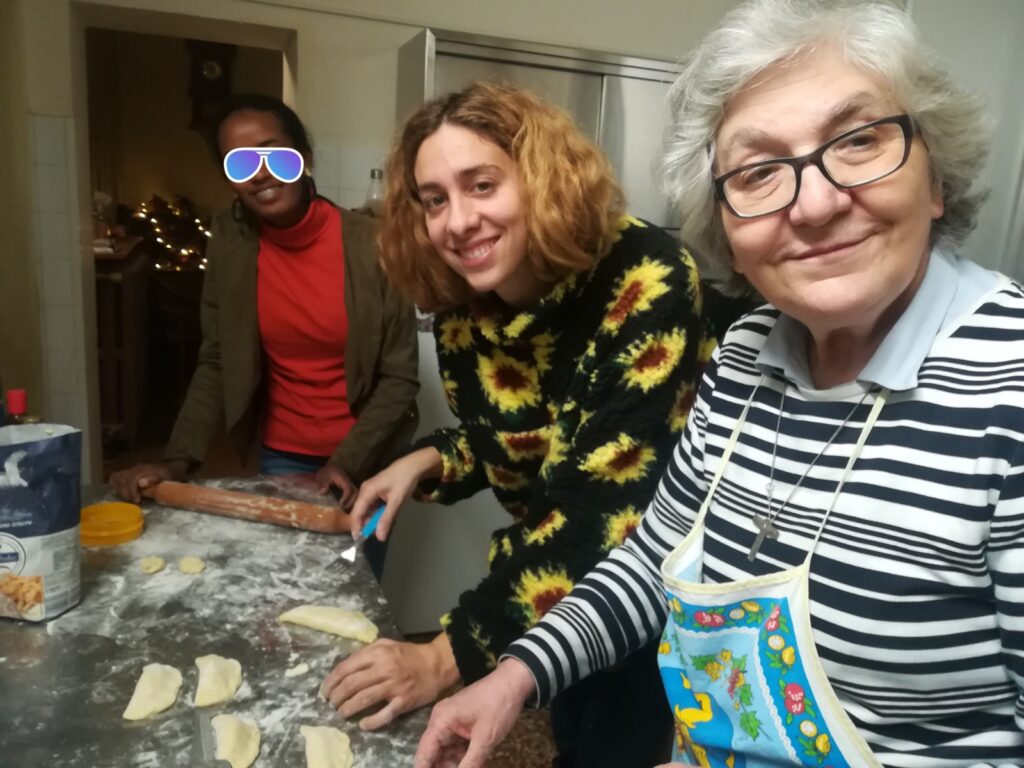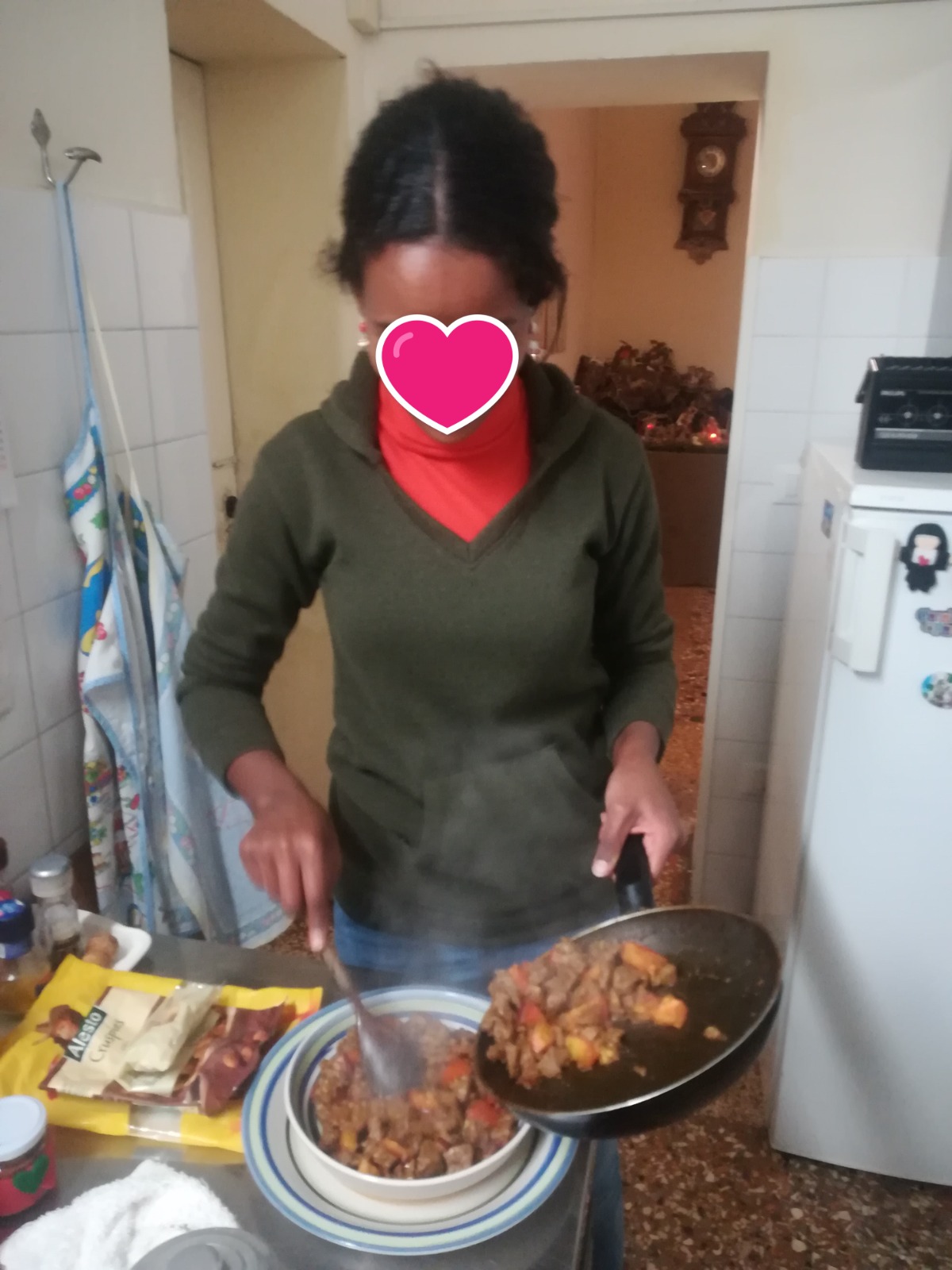
27 Jan ASSA: SUBJECT OF OUR IN-HOUSE NETWORKING/ITALY
Since November 25 we again hosted a 25 year old Eritrean refugee coming from a camp in Ethiopia, where she had lived for almost 2 years. We will call her Assa.[1] Now that war had also broken out there, they have again opened the humanitarian corridors that had been closed due to the virus.
Asssa was born in Addis Ababa in 1995, and she was expelled to Eritrea at the age of four. She left her country at the end of November 2018.
Reasons: like all students, she had to do the last year of secondary school in a military center where they have six months of school and six of military training.
She herself tells us: I arrived there in July 2012. The situation was very difficult, and you had to execute every order without question. After a year, they gave us a month of vacation, and all us returned home. At that time they would notify us about the results of the exams and whether we would be able to go on to university.
After two weeks, I found out that I had not attained a grade that was high enough for university, to which very few students are admitted, and not even for a diploma. After a week they told us that we would return to the military center where we would receive a two year vocational training. This is very strange, because in general the people who have obtained good grades return to continue their studies, the rest begin vocational training, and they they work in the army. But there are constant changes and new laws, and we hoped that there would be an opportunity for all to study.
When we returned, we did nothing for two weeks, and then they told us that we were going to do exercises in which we would have to walk. We walked for three hours, and they told us that, like soldiers, we would have to practice all the time, we could not stop. Meanwhile, many different materials arrived at the camp: pans, water receptacles… but we could not ask what they were going to be used for. Also, we saw them constructing cots with the materials. They called us to tell us that we would have to be prepared for another hiking exercise and, of course, they did not answer our questions about where we were going. They started us on the road at five in the afternoon to we knew not where. We were all beginning to get worried, and some thought about running away because they did not trust them. I too was thinking this way because I had never chosen to be a soldier, which there would last for my entire lifetime. I kept up the hope of being able to study. Besides, we were surrounded by soldiers, and it was impossible to escape, also because if they captured you, the punishments would be very harsh. Among other things, the border areas were guarded and those whom they captured had their shoes confiscated in order to prevent another attempt, since the terrain is very difficult.
If they didn’t return, we would not know if they had succeeded, because they could be devoured by hyenas on the road.
We walked 30 kilometers without carrying anything because they told us that we would be staying a few days. They did not want us to be tranquil; they kept our minds and bodies occupied because if we had time to think, we could think about disobeying, about running away. The punishments also are severe even for the smallest thing, always to keep us occupied.
Every day we would walk for 3 to 5 hours, according to the difficulty of the road. We got up at 4:00 or 5:00 to walk in the cold and we never knew where we were going. One day I tried to escape with a friend, but they captured us. Because of the place where they found us and the fact that we did not have a backpack, we said that we had gotten lost, but they took away our shoes.
One day we came to a dam; at last, after so much time, we were able to get washed. There we stayed more time in order to rest before the final stage. Some children, while they were bathing, were pulled by the quicksand in the bottom of the river, died, and were buried by the others. At that moment they told us that we would set out on the road, although the heat was unbearable because it was about 3:30. We arrived at our destination after two hours and forty minutes, the shortest trip that we had made.
We were more and more discouraged, but the soldiers kept threatening us. The road became more and more difficult because it was uphill. Many began to get sick, from diarrhea, exhaustion, hunger, lack of water. The sick were transported in a car or on cots. I had a foot infection.
After a long walk, getting more and more discouraged, we arrived at a place where everything began to change; whoever tried to escape and was captured was locked up in an underground prison, they would make a hole in the upper part and cover it with thorns so that the person could not escape. We began to realize that this was a camp. they made us dig holes that they made into baths or build shower stalls with wood. Now those who were captured were also beaten.
The desire to continue to study was the only thing that gave me the strength to continue. At the end, the night of January 3, 2014, I decided to flee with three other girls, who were my friends from before. During the flight, we took longer roads that were safer and met up with other students who, like us, were escaping. The 7th of January, which for us was Christmas, finally we arrived in my city, where the others could also rest before continuing on the journey to their families. We arrived at night, so no one saw us, but the people knew that I was there, and they asked me questions. I invented excuses and meanwhile studied. Also there were raids, and then I would go to other places. That is how 2014 ended.
In January of 2015 I began to work in a Catholic institution that wanted to help me. I continued there until 2018, the year in which they made the peace agreement between Eritrea and Ethiopia, and they opened the border,s and they have become still more fierce. I was in a refugee camp.
Then a priest relative of mine who lives in Italy pointed me to San Egidio for the humanitarian corridors.
I could not return to my country because I would receive a military punishment for having left the army, for having hidden myself and having left the country illegally, and also because they would know that I had said those things. My parents always said that they did not see me, and that they did not know where I was, therefore they were safe.
We had offered to accept two girls who would share life with the girls of the residence. I was thinking that it would be so that they would not be isolated but they would share life so that it would be a great opportunity to be mutually enriched. Only one came, and we again thought about what would be best for her.
Meanwhile one of the former residents who always had stayed in an excellent relationship with us, visiting us, calling us when she needed advice, participating in the national meetings of the ACI Family, called us because we had offered her a place in our house if she needed it and, in fact, she did need it.
Now sharing the room and life, something which delighted her. The former resident had been ready about a year ago to go to our mission of Manta, in Ecuador for a year, when the virus interrupted the dream. Now the mission has come to her.
We got two other girls in the residence involved in taking care of the Eritrean girl; they had been hoping for service experiences, and now they had this one in the house.
The two “refugees” eat at mid-day with the community, which they enjoy very much, and they fit right in with the community. They have supper in the residence with the other girls with whom they share about their history and culture.
It is a wonderful experience, The students of the residence accepted her with great affection and interest in her culture, and she became one of the group,
She feels very much at home and grateful for the affection and the care with which we have welcomed her, we can see that she is happy and relaxed and eager to in depth what she is experiencing.
She is an intelligent girl, who wants to learn and who is very aware that this is her opportunity. To be able to begin again in a country where people live in peace, without fear and besides with a “family” is like a rebirth for her.
Let’s listen to Assa again: When I arrived in Italy, on November 11, I knew that I would be with the nuns, and I was a bit worried, not knowing what their impression of me would be; I was afraid. Then I had to do the quarantine, and during that period we had two video calls during which we laughed so much that my companions asked me why, what were we talking about…Then I arrived at the convent, and immediately the Sister greeted me with a big hug in spite of the virus, and I felt good, very welcomed. Then she joked about my very heavy suitcase, asking me if I had put my family in there. This also set me at ease because if she had been more serious, I would have been scared.
It also helped me very much to meet the Italian girl with whom I shared the room, because she took me under her wing and introduced me to this new world.
The relationship with the girls in the residence is very cordial; every time they see me they ask me: “How are you?” I feel that all of them care about me; they are all concerned that I am well, and this makes me feel good,
Also for the community it is a wonderful experience to have her here, fitting in so well, so happy and eager, and with so much capacity to enjoy everything. The Lord enhances our life when we share, and through her we share also parts of the journey with the one in charge of a community of welcome here in Bologna where she arrived. This was a project of collaboration which was stopped by the virus even before it began. Everything was already organized with our girls, and we continue hoping to return to normality in order to finally be able to begin.
Tiziana Petripaoli aci
[1] Pseudonym.

